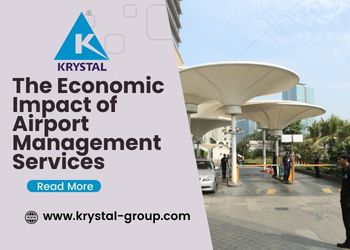The Economic Impact of Airport Management Services
The Economic Impact of Airport Management Services
Blog Article

Introduction:
Airport management services play a pivotal role in the global economy. These services, which encompass a wide range of activities including operations management, safety protocols, passenger services, and logistics, are essential in ensuring that airports run efficiently and effectively. In this blog post, we will explore the various economic impacts of airport management services, highlighting their significance in the broader context of global commerce and travel.

1. Boosting Local Economies:
Airport management services directly contribute to the local economy. Airports are often one of the largest employers in the area, providing a range of jobs from entry-level positions to high-skilled roles. Additionally, well-managed airports attract airlines and passengers, leading to increased spending in local businesses such as hotels, restaurants, and retail stores.
2. Enhancing Global Trade:
Airports serve as critical hubs for international trade. Efficient airport management services facilitate the smooth transit of goods, thereby reducing delivery times and costs. This efficiency is essential for businesses that rely on the speedy transport of goods across borders, contributing significantly to the global supply chain.
3. Attracting Investment:
High-quality airport management services can make a region more attractive to investors. A well-managed airport is often seen as a marker of a region’s overall economic health and potential for growth. This can lead to increased foreign direct investment in various sectors, further boosting the economy.
4. Innovation and Technology Advancement:
Airport management services are at the forefront of adopting new technologies. From automated check-ins to sophisticated security systems, these innovations not only enhance efficiency and safety but also drive technological advancement and create opportunities for tech businesses and startups.
5. Environmental Sustainability Efforts:
Modern airport management also includes a focus on sustainability. Efforts to reduce carbon emissions, manage noise pollution, and implement green initiatives have economic benefits. They contribute to a healthier environment, which can have long-term positive effects on local and global scales.
6. Crisis Management and Resilience:
Effective airport management plays a crucial role in times of crisis, such as natural disasters or global pandemics. The ability to quickly adapt and manage these situations can mitigate economic losses and ensure the faster resumption of normal activities.
Conclusion:
Airport management services are not just about ensuring that flights take off and land safely. They are integral to the economic fabric of local communities, countries, and the world at large. From boosting local economies and enhancing global trade to promoting tourism and driving innovation, the impact of these services is profound and far-reaching. As the world becomes increasingly interconnected, the role of efficient and effective airport management will only continue to grow in importance.Airport Management,Airport Management Services,Airport Management Services Impact Report this page